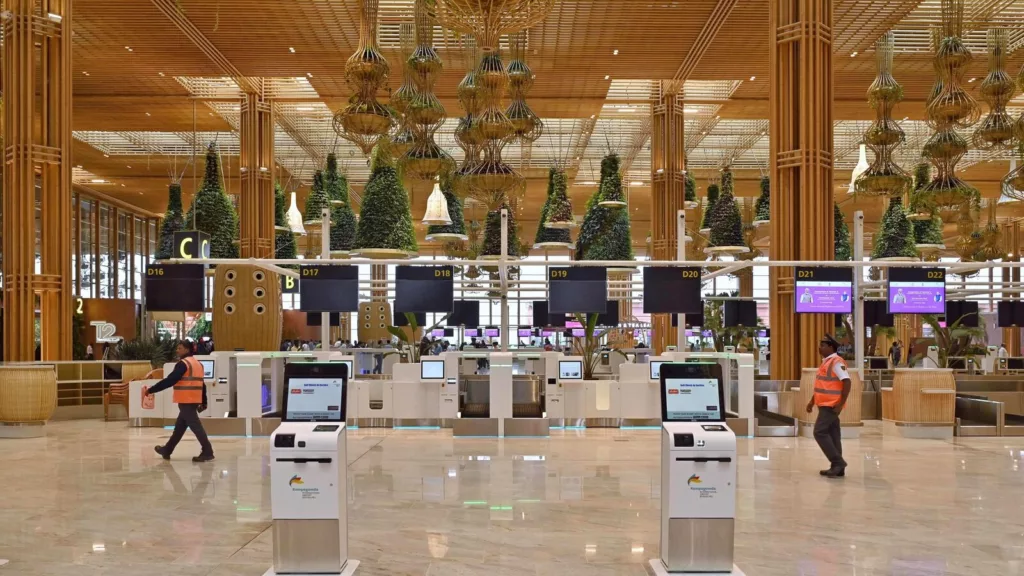Bengaluru airport becomes first to exempt removal of gadgets in-tray security check system

Passengers travelling through Terminal 2 (T2) at Bengaluru’s Kempegowda International Airport (KIA) will soon be exempted from the requirement of removing personal electronic devices, such as mobile phones and laptops, from their handbags during pre-embarkation security checks.
Bengaluru International Airport Limited (BIAL) has announced that the CTX (Computer Tomography X-ray) machine at T2 will undergo a trial run in the coming weeks. Initially, this advanced system will cater exclusively to domestic passengers and is expected to be fully operational by December 2023.
As per the information provided, the commencement of the trial run for the CTX machine at T2 is scheduled to take place in the upcoming weeks. He also mentioned that KIA will be the pioneering airport in India to initiate passenger trials for the CTX machine, which will be seamlessly integrated with the Automatic Tray Retrieval System (ATRS) and full-body scanners.
As per the information received, T2 now has three full-body scanners installed to enhance the speed and security of air travel. The new system allows operators to rotate the view and examine the contents of bags, which will reduce the need for re-checks and physical inspections.
Additionally, the number of trays required per person during security screening will be reduced with the implementation of this new system, as stated by Raghunath.
Passengers can now keep their electronic devices such as laptops and LAGs (liquids, aerosols, and gels) in their bags during the screening process, resulting in a faster and more efficient process. This will also reduce the time spent at security checkpoints. By reducing the number of items that need to be removed from luggage, there will be fewer trays needed, which will speed up the process and reduce contact points.
Additionally, the need for patting down passengers after the initial screening through the metal detector will be eliminated.
Additionally, CTX Proof of Concept (POC) is currently being tested at T2. The process of installing and integrating it with ATRS lanes is currently in progress, and trials involving passengers will commence shortly.
The addition of CT and automatic explosives detection algorithms in the advanced screening of carry-on baggage will enhance security outcomes by providing superior 3D image quality. Furthermore, CT technology is capable of accurately identifying the density of liquids. Prime Minister Narendra Modi inaugurated T2, also known as a ‘terminal in a garden,’ in November 2022, with a construction cost of approximately Rs 5,000 crore. Domestic operations at T2 commenced on January 15, 2023, while international flight operations began on September 12.
Terminal 1 (T1) serves domestic flights, such as Akasa Air, Alliance Air, IndiGo (domestic), and SpiceJet. On the other hand, Terminal 2 is solely designated for international airlines, as well as domestic flights operated by AirAsia, Air India, Star Air, and Vistara.
Although Delhi airport has already conducted CTX trials, it still needs to conduct passenger trials for the CTX machine, which is integrated with ATRS and full-body scanners. It is worth noting that the IGI Airport does not currently have full-body scanners, but CT and FBS are in the process of being procured.
The facility offers numerous benefits, including improved passenger convenience, heightened security screening measures, simplified identification of potential threats, seamless passenger transit, and expedited security screening procedures.
The deadline set by the Bureau of Civil Aviation Security (BCAS) for the installation of 3D CTX machines for cabin checks at major airports handling 50 lakh passengers by the year-end is expected to be missed by most operators.









